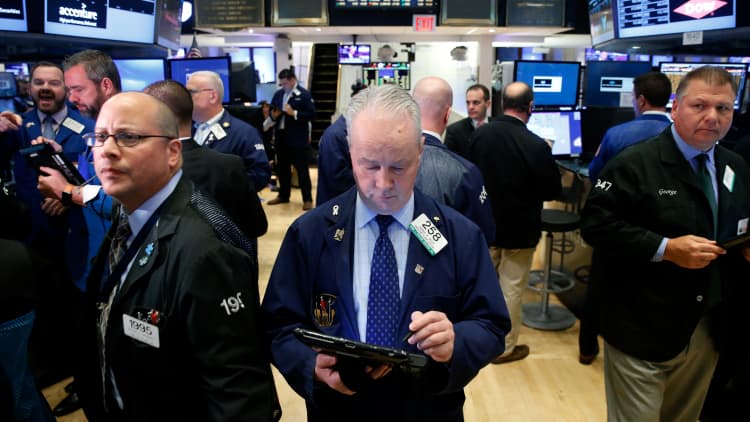
Traders dusted off their market correction playbook Wednesday as a measure of fear on Wall Street surged in early trading on the drama unfolding in Washington.
History shows bonds and gold retain their value during times of rising fear on trading floors, while bank stocks get shellacked.
The CBOE volatility index, which had signaled that investor complacency remained near two-year lows for most of 2017, jumped more than 15 percent Wednesday. Theoretically, if investors are growing more fearful about a coming stock market drop, they will pay more for options bets against the S&P 500, and the value of the VIX takes off.
That's what was happening Wednesday after news surfaced of a memo from fired FBI Director James Comey alleging President Donald Trump asked him to drop the investigation of former national security advisor Michael Flynn. The memo raised concerns that the pro-business Trump agenda will lose support in Congress as the president becomes more embroiled in scandal.
Using hedge fund tool Kensho, CNBC looked at what typically happens with major asset classes and stock sectors when the level of fear rises on the Street. We found 90 occasions in the last decade when the VIX jumped 20 percent in a week, something that looks likely to happen even before trading ends Wednesday.
The lost 3.5 percent on average during those VIX pops, according to Kensho. The iShares 20+ Year Treasury Bond ETF, a proxy for government debt, is the top performer among major asset classes, gaining more than 1.6 percent on average. Gold and the dollar were mostly higher.
This scenario was already starting to play out as trading began Wednesday, except for the dollar, which was lower on concerns that the trouble at the White House may jeopardize the currency's reserve status. Some traders believed the greenback may recover and act more like it has in the past during a crisis.
"While political chaos may indeed dent the armor of the dollar, it is not giving up the throne as the reserve currency overnight," Brian Kelly of hedge fund BKCM wrote in a note. "If a political crisis in the US is not contained, then during periods of global financial stress the dollar tends to rise."
Among major stock sectors, nothing averaged a gain during these one-week jumps in fear. In fact, the quintessential Trump trades have been the worst performing sectors during VIX surges.
The S&P 500 financials sector, which has surged since the election on Trump's promises for deregulation, averages a 5 percent decline. Materials and industrials, also big winners since the election, were among the worst performers during past VIX pops.
— CNBC's parent NBCUniversal is a minority investor in Kensho.


